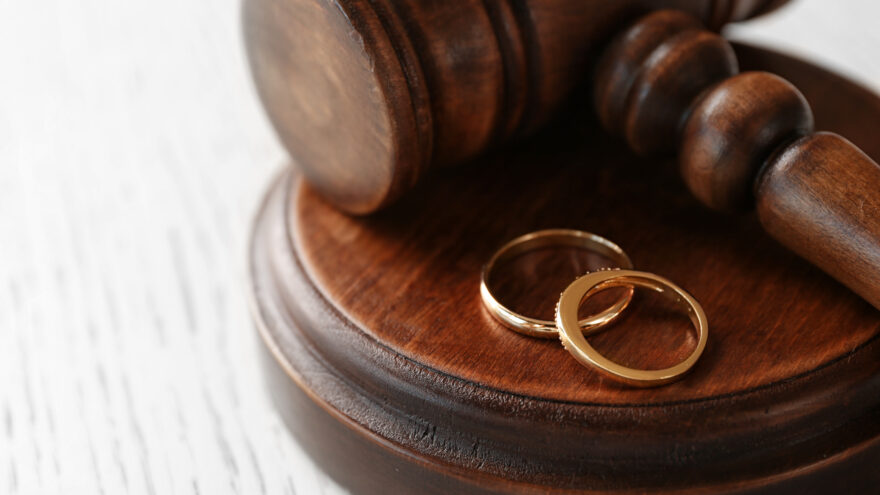Divorce is a process that affects every aspect of your life, including your financial situation. If you are in or approaching retirement in New Jersey, it is important to educate yourself on how divorce will impact your benefits and income. Here is some helpful information about how retirement funds are normally split in a New Jersey divorce.
For more information, read our New Jersey Pre-Divorce Retirement Checklist.
How Do You Divide Retirement Funds In A Divorce?
In New Jersey, the division of retirement funds in a divorce is typically governed by the principles of equitable distribution. Here are the key steps and considerations involved in dividing retirement funds during a divorce in NJ:
- Identify Retirement Assets: The first step is to identify all retirement assets that are subject to division. This may include 401(k) plans, IRAs, pensions, and other retirement accounts.
- Valuation: The next step is to determine the current value of these retirement assets. This can be a complex process and may require the assistance of financial experts or actuaries to accurately value pensions and other defined benefit plans.
- Equitable Distribution: New Jersey follows the principle of equitable distribution, which means that marital property, including retirement assets, should be divided fairly but not necessarily equally. The court will consider various factors to determine what is fair, such as the length of the marriage, each spouse’s financial contributions, and their respective needs.
- QDRO (Qualified Domestic Relations Order): If a retirement plan, such as a 401(k) or pension, needs to be divided, a QDRO may be necessary. A QDRO is a court order that instructs the plan administrator on how to divide the retirement account between the spouses. It is important to ensure that the QDRO complies with both federal and state laws.
- Tax Implications: Be aware of the tax implications of dividing retirement assets. Different types of retirement accounts may have different tax consequences when funds are withdrawn or transferred. Consult with a tax professional to understand the tax implications and potential strategies to minimize taxes.
- Legal Assistance: It is highly recommended to consult with an experienced divorce attorney who can guide you through the process and ensure that your rights are protected. An attorney can help negotiate a fair division of retirement assets and assist in drafting the necessary legal documents.
- Court Approval: Once an agreement is reached or a court order is issued, the division of retirement assets can proceed. The court will review and approve the division if it meets the equitable distribution standards.
It’s essential to keep in mind that divorce laws and procedures can change, so it’s a good idea to consult with a family law attorney who is familiar with the current laws and regulations in New Jersey. Additionally, consulting with financial professionals can help ensure that the division of retirement funds is done in a manner that aligns with your financial goals and needs.
What Are The Retirement Benefits For A Divorced Spouse?
In New Jersey, a divorced spouse may be eligible for certain retirement benefits under specific circumstances. These benefits typically depend on the length of the marriage, the divorce settlement, and the type of retirement benefits involved. Here are some key considerations:
- Social Security Benefits: A divorced spouse may be eligible to receive Social Security benefits (up to 50% of their ex-spouse’s Social Security benefit amount) based on their ex-spouse’s earnings record if the following conditions are met:
- The marriage lasted at least 10 years.
- The divorced spouse is at least 62 years old.
- The divorced spouse is currently unmarried.
- The ex-spouse is eligible for Social Security benefits (either receiving them or eligible but not yet receiving them.)
- The benefit the divorced spouse would receive based on their own work history is less than what they would receive based on their ex-spouse’s work history.
- Pension Benefits: The division of pension benefits in a divorce is typically governed by equitable distribution, as mentioned earlier. If the court awards a portion of the pension to the divorced spouse, they may be entitled to receive pension payments once the retired spouse begins receiving them. This would be outlined in the Qualified Domestic Relations Order (QDRO).
- IRA and 401(k) Accounts: Similar to pensions, IRA and 401(k) accounts may be divided between spouses in a divorce using a QDRO. If awarded a portion, the divorced spouse can roll their share into an IRA account, which allows them to maintain tax-advantaged status for the funds.
- Other Retirement Savings: Any other retirement savings or investment accounts that are divided as part of the divorce settlement may become part of the divorced spouse’s assets. They can manage and access these accounts according to the terms of the settlement.
The specific benefits a divorced spouse receives will vary depending on the individual circumstances of the divorce, the length of the marriage, and the decisions made during the divorce settlement negotiations or court proceedings.
Contact a New Jersey Financial Advisor to Discuss Divorce in Retirement
Consulting a fiduciary financial advisor during divorce in retirement is crucial because they provide expertise in analyzing the long-term financial implications of divorce settlements. They help clients understand the tax consequences, asset division strategies, and retirement income adjustments. Advisors can optimize asset allocation to align with post-divorce financial goals, ensuring financial security in retirement. Their guidance ensures informed decisions, helping individuals avoid common pitfalls, protect retirement savings, and plan for a stable future, making the transition from married life to retirement as financially seamless as possible. Contact Zynergy Retirement Planning today to discuss your situation.

